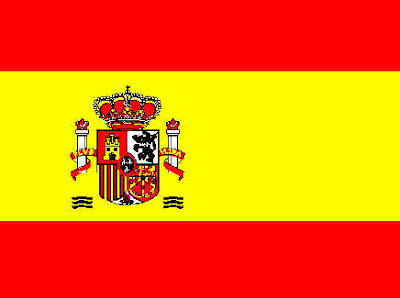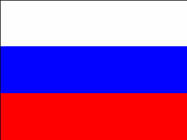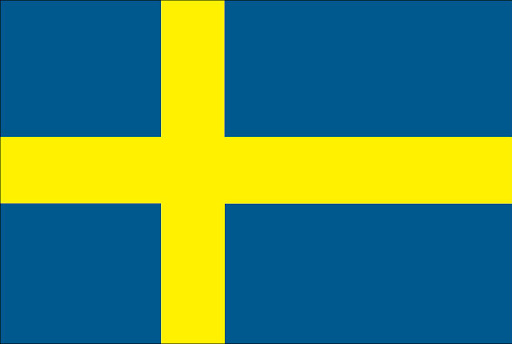Proposal
The intention is to have young people helping to prepare elderly people for the modern life, through the use and spread of information technology(IT). In this process, the objective is the rescue of moral and civic values for the efective accomplishment of the rights and duties that are predicted in the Statute of Elderly People and in the Statute of the Child and the Adolescent, so people can have a better quality of life based on the education.
Action
From 2001 to 2007, 324 young people participated in this project as monitors and 308 elderly people graduated in Information Technology for the third age. And in 2008, there are 52 young people helping and 48 elderly people taking the course. Every year, about 40 elderly people are able to use the computer, as a result of the young people work.
As the author, I have the intention to spread the project Integrating Generations “Information Technology for the third age” in all the private and public schools around this country, trough the publication of a book, which draft is already done, and tells the experience in details: how the project was created, the problems, the solutions, the results, the associations, the prizes, the conquests, and mainly, the methodology that was used and the operation. The material still needs to be edited. We believe that this is going to be another way to develop the project to reach all the society and other institutions of education.
The Project Integrating Generations
Initiative puts together public power, school and parents to stimulate the volunteer work between young and elderly people, promoting citizenship and digital inclusion.
The project “Integrating generation- Information Technology for the third age” was created in 2001, in Campo Grande, from a request of the Acquaintanceship Center of the city hall, which was interested in forming associations in the educational area. The professor Francesco Edson Nogueira, who created this project and is also a teacher of Information Technology in a school of this region, planned and developed the idea of promoting the integration of students with elderly people from the community, using the computers. The main idea is to invite the students to share their knowledge and experiences about computers with elderly people, acting as teachers or monitors.
In the beginning, it was something totally new and a real challenge. There was no experience with teaching elderly people how to use the computer. On the other hand, there was some kind of prejudice of young people. They used to ask: “are they( elderly people) still able to learn anything? The computers are for our generation, aren’t they? Aren’t we wasting our time with something that won’t work? The progress and the future of our country depend on the youth… They should play bingo, travel or sew…”
These questions were answered with another questions: “what about the elderly people’s rights? Have you ever heard about the statute of the elderly people? Don’t you think we could save more time in the supermarkets, banks and in other stores, if they were able to deal with the modern machines? And there is one more thing: the future is for everybody, not only for a specific age, that is the reason why there is a big number of elderly people interested in this project.” We still discuss these questions with the students.
Interests
We can not compare elderly people of our time with some years ago, because nowadays they are completely different, they are dynamic, they live much more, they are criticals, and know their rights and duties.
There is a specific law for them: the statute of the elderly people. That is one of the reason why we need to promote ways to value them, and one of these ways is to have them more familiar with the technology. We can realize how difficult and sometimes embarrassing is it when they have to use machines that can make routine procedures much easier (example: bank procedures and commercial procedures). There is a real necessity to have them become able to deal with modern life machines, so they can really have quality of life.
On the other hand, young people are very familiar with the technology, using the computers to obtain different kinds of information. And we know that many of them do not use the computers in a positive way. It is possible to notice that not even our penal code has forms to punish facts like: computers invasions, virus sending, inducement to the use of drugs and to violence and terrorism, and there is also the easy access to pornographic sites.
Because of the busy style of life of this century, most of the parents have to work all the day to give good quality of life to their families. The absence of the parents can conduct the young people to the negative situations above discussed.
The project Integrating Generations intends to minimize some aspects that are not positive, as the young people can use their knowledge of computers to help the elderly people.
Participants of the project
The project “Integrating Generations” can be developed through the association of the local public power and an institution of education. Elderly people are enrolled in the local secretary of the social assistance. This partnership intends to have more specific information about the elderly people during the project and also provides a bigger integration and spreading of the social movement developed.
The social assistants of the city hall are responsible for the pre-formation of the Information Technology course groups, which is carried in the computer lab of the school. The groups can have 25 people. But this number can vary if the space in the lab is bigger and the number of monitors is increased. This volunteer work is provided during all the week, and the classes last one hour and a half.
The volunteer student becomes a monitor, and the elderly person who receives the instructions becomes a student. The project usually starts a month after the beginning of the classes so the new students can be monitors.
The volunteer students are about 10 and 16 years old. They are guided by a volunteer professor. They are not auxiliars, but teachers that are coordinated by the professor. What has to be emphasized is the opportunity that is given to young people to have a change in their habits, which can be reflected in their families and in the society. During the classes and in extra meetings, it is developed a preparation work about questions related to the volunteer work, such as: what is it? Why being a volunteer? What are the duties of a volunteer? What are the advantages of being a volunteer?
The monitors are asked to have as much as possible of information about their students. The monitors are supposed to interview their student during the registration form. Information about the student, such as birthday, address, phone numbers, likes and dislikes, hobbies, health problems, history and life experience, difficulties of learning, and other information can help integration process between the monitor and the elderly person.
Another participant in the project is the leader monitor. He has to supervise the other monitors work and replace the volunteer professor when it is necessary. He also has to check the students and monitors frequence to the classes, report his conclusions, clarify the doubts that are carried out by the monitors and students. Each group must have their own specific leader monitor.
The students are sixty years old or more, they do not only receive information, but in this project, they have some actions too. They are supposed to promote some changes in some young people if this is the case. For example, if a monitor has bad habits or prejudice, they should try to rescue ethics and moral values, social rules. These subjects can also be discussed in meetings that involve monitors parents, making the integration of generations more possible and stronger.
The parents have an essential function, because it is inside the houses that we can realize the changes concerning the young people habits and behavior towards elderly people. Having this in mind, a specific questionnaire was elaborated to be answered by the parents. This document has the objective to get correct and precise information which reflects the situations, in which they can see their kids changing their behavior, or the problems they are facing as monitors.
Some conquests of the project
For the good results of the project “Integrating Generations”, the education institution MACE, received in 2003, 2005 and 2007, the certificate and status of “ Sympathetic School” from the Institute Brasil Voluntário, which is connected to the education and culture department of the federal government and to UNESCO. In the same year, a local private university, after having information of the project, offered the opportunity of an interchange between the college students and the students from the project, establishing partnerships with the courses: Psychology, Physiotherapy, Medicine, Fashion, Physical Education, and also made available the university space to be used by the elderly people if they need to have practical classes, or to give lectures.
In 2004, the project was one of the winners of the contest: Maturity Talents, in the category: the best programs, promoted by the institution Banco Real AMRO. With the prize, in 2005, the activities from the project were increased with extra functions and a plan of a Private Secure against personal accidents, which is covered 24 hours a day. In the same year, the project was one of the finalists of the prize ODM Brasil 2005, promoted by the program of the United Nations for the development (PNDU/ONU), and received the certificate as the winner of the national Prize of Social Technology of our region, promoted by the Foundation Banco do Brasil. With the money they received, they could buy 40 computers to be used by the students in the project.
In 2006, the project was selected to integrate parts of two books: “Casos e contos- Viagem por um Brasil Solidário”, from the institute ‘Faça parte’ (www.facaparte.org.br), institute connected to the Education Department, Undime and UNESCO/ONU , which intends to spread the social projects and companies that are involved in volunteer work with young people; and “Jovens Transformações”, published by Ashoka Empreendedores Sociais (www.ashoka.org.br).
Text based on the report of Francesco Edson Nogueira, 37 years old, author and coordinator of the project “Integrating Generations”- Informatica for the third age, developed in a private school of Campo Grande (MS).
Tradução realizada gentilmente, pela professora LauraContato via e-mail: laurahl@terra.com.br











